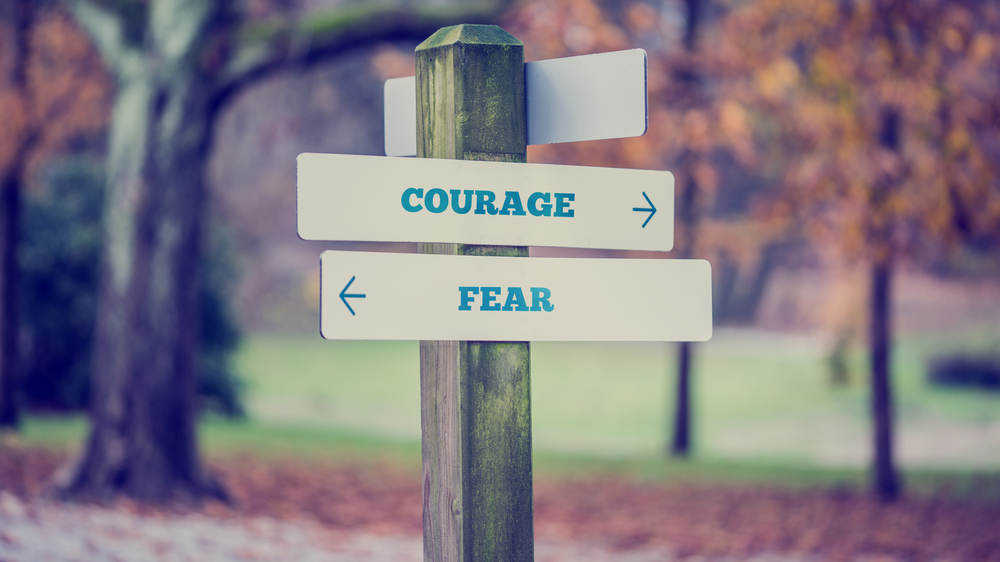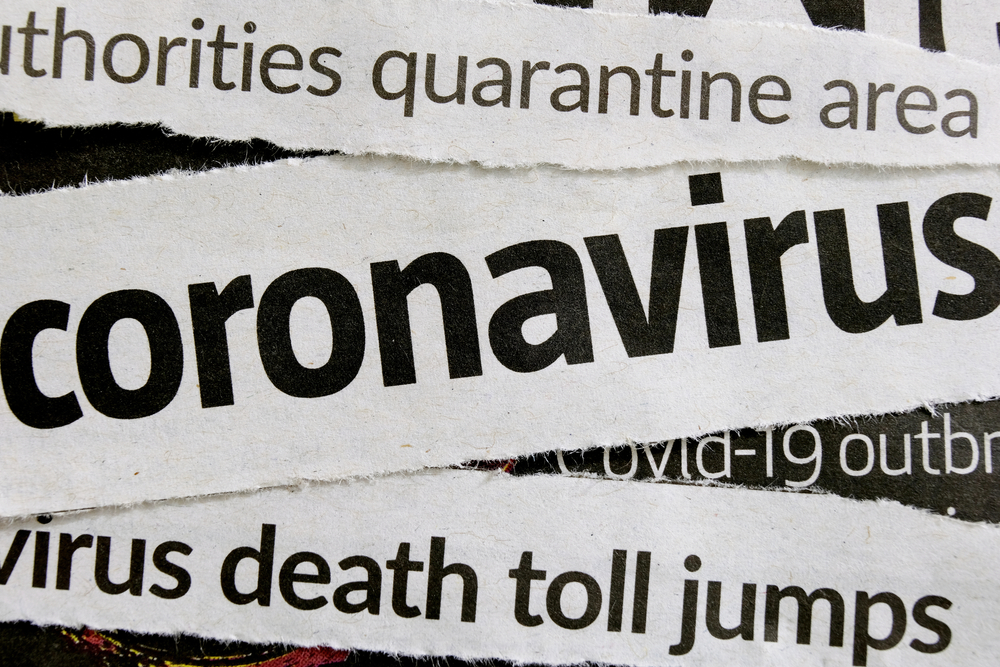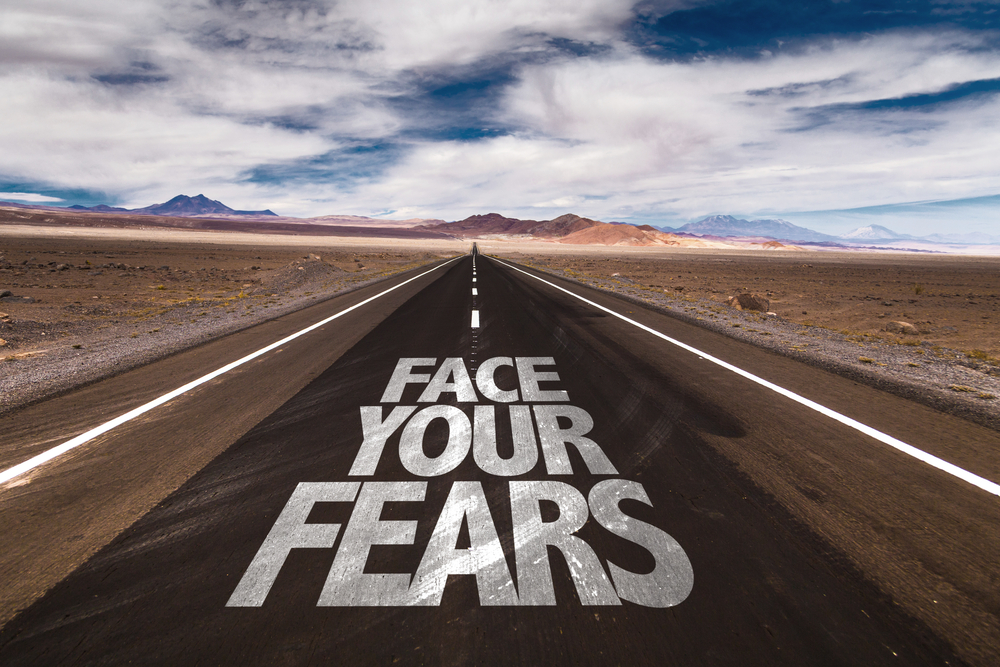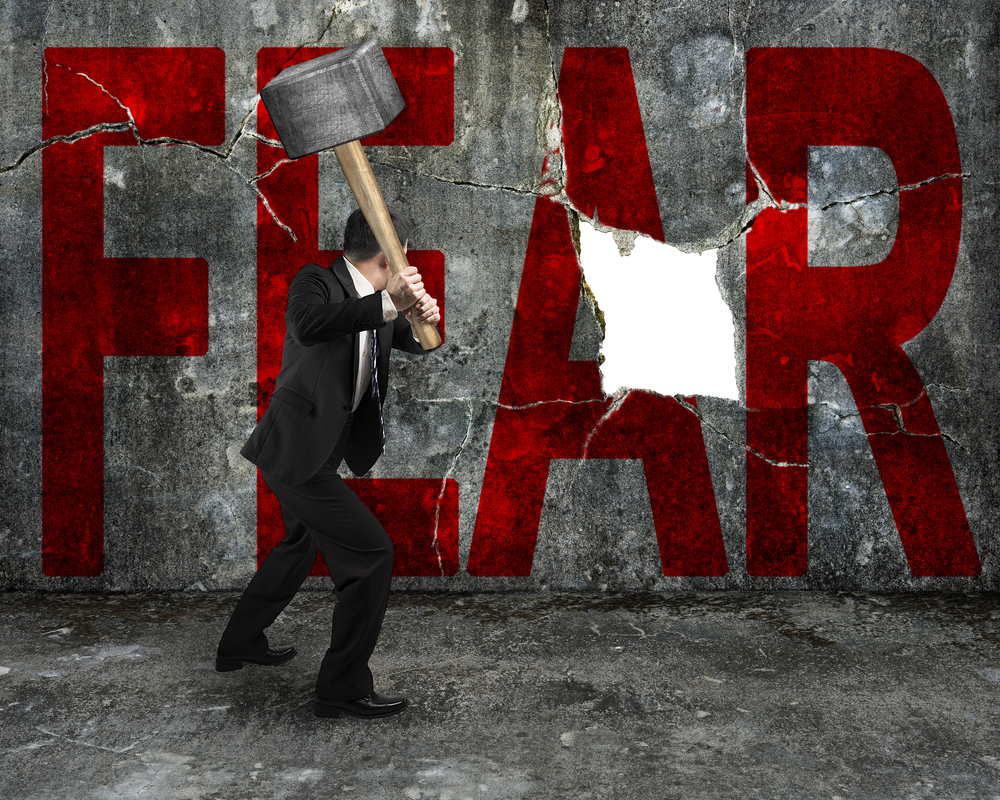
We’ve all been there. “I’m worried”, “I’m scared”, I’m nervous and anxious.” These, together with many other similar variations, are dominant phrases in our daily language.
We’ve always had things in our lives that make us worried. But recently, with the huge uncertainty created by the COVID-19 pandemic, our levels of anxiety, worry and fear have increased exponentially.
An introduction to fear
If you could put a pound in a jar every time you think or experience some sort of negative thought or emotion about a future event or a situation, you would end up saving a decent amount of money.
As a life coach, I can say without a shadow of a doubt, the majority of the people who decide to work with a coach are not doing it because they need someone to help them to achieve their most important goals and dreams. Most people already know what they want and what actions they must take.
What they do not know, or aren’t completely aware of, is how to deal with all the limitations, the fears and the worries that often go on in their mind subconsciously.
They don’t know how to overcome all the emotional roadblocks that are stopping them to live an empowering and fulfilling life.
When the world becomes a scary & unpredictable place
Don’t get me wrong, it’s legitimate today to feel insecure. You have all the right to feel afraid for your future, for the future of your kids and the future of your loved ones – as well as your professional future. The whole world is experiencing something completely new and unknown. We are living in a situation where some of the most important human needs are compromised. Safety needs.
People want to experience order, predictability and control in their lives. Love and belongingness needs. We all want interpersonal relationships like friendship, intimacy, receiving and giving affection and love while being also part of a group like with family, friends, or at work.
Since the Pandemic, some of our most important basic human needs have been hugely challenged. Confusion, fear and uncertainty about the future are a dominant feeling that we are all experiencing.
However, even when everything out there is out of our direct control and when everything around us appears to be falling apart, there is still something you have complete control over.
Your thoughts.
No matter how bad it is out there, your thoughts and therefore the emotions that you are producing as a result of your thoughts can be managed. You can still make your life worth living. Or, if you choose, you can make your life a living hell. You could concoct a scenario that’s even worse than the reality.
Ralph Waldo Emerson said:
Fear defeats more people than any other one thing in the world.
Now if you’re after fear quotes, that’s got to be one of the most powerful. If we could count all the victims that fear made and it’s making every day, we’d be astonished. Right now, fear could be slowly killing you and it’s more dangerous than any other existing disease. Let me prove this to you with a little simple activity.
I also want to leave you with a promise. If you do this activity properly, the way you see yourself and your FEAR won’t be the same anymore.
FEAR ACTIVITY
What causes fear? Your thoughts. Those of you who want to try and overcome fear should take the time to do this powerful activity.
- Sit down for a moment, close your eyes and think something that scares you.
It doesn’t matter what, just think about something you are really afraid of. It can be anything. A fear of spiders, a fear of flying, a fear of heights or a fear of speaking in public. If you have some new fears related to the COVID-19 pandemic, think about them. For example, the fear of catching the disease, losing your job, or losing a loved one.
- Spend some time with your fear
It doesn’t matter what your fear is, the only thing I want you to do is to experience the fear you’re thinking about at full blast. By using all your 5 senses, I want you to imagine your fear as real as possible as happening right now wherever you are. What does it feel like? What do you see and hear? What is going on physically in your body?
- Stay with your fear for a few minutes
Take a deep breath, close your eyes and use your mind to go into a place of fear, stay there for a couple of minutes. Continue to be aware of what’s happening to your mind, your body, and all the sensations you are experiencing.
Keep your eyes closed and stay for a bit together with your worst enemy. Your fear! If for some reason this activity becomes too uncomfortable for you, or too frightening, just stop!
- Open your eyes and come back into the moment
Take a deep breath and relax! See? Nothing happened at the end!
RESULT: THE FLIGHT OR FIGHT RESPONSE
Ok, let’s examine together what happened…Let’s look at the fear psychology and what just occurred in your mind.
While you were thinking about your fear, you should have experienced several uncomfortable sensations both in your mind and in your body. Negative thoughts and fighting emotions were probably arising at the speed of light.
Your body was reacting to your fear by increasing your heart rate, putting some tension on your chest. A line of cold sweat was probably coming down from your forehead, you may have had shallow breath and uncomfortable sensations in your stomach, or something along those lines. Basically, your Fight or Flight Response was fully activated.
This response is a physiological reaction that presents itself when something is really frightening. This can be something that you are physically scared of, or it can be a mental barrier. By reacting this way you actually make your body release hormones. It’s these hormones that enable you to face whatever the threat is head on – this is the ‘fight’ option. Or you may choose the ‘flight’ option if you deem something too dangerous. In this instance, you would run away to make yourself safe.
However, sometimes we behave this way because we perceive something as a threat when really, we’re fine. But it still triggers the fight or flight response. You may not actually be in danger, but in your mind, the threat is still very real.
This clever response by the body can actually be handy if you are in real danger, or if you are in a situation where a bit of adrenaline just might enable you to perform better. For example, if you have a competition or sporting event to take part in, this adrenaline buzz can actually be extremely useful.
People often bring up the sabre-toothed tiger example in relation to the flight or fight response. In the times of cavemen, this was a very real threat to them. And when their response kicked in, it just may have saved them from the jaws of a predictor and helped them get away. It’s just that in modern times, what we perceive as a ‘threat’ can be very different. We might consider public speaking, flying on a plane or spiders as a threat.
While the fight-or-flight response happens automatically, that does not mean that it is always accurate. Sometimes we respond in this way even when there is no real threat. Phobias are good examples of how the fight-or-flight response might be triggered in the face of a perceived threat. Very Well Mind.com
A person who is terrified of heights might begin to experience the acute stress response when he has to go to the top floor of a skyscraper to attend a meeting. His body might go on high alert as his heartbeat and respiration rate increase.
Your thoughts create your emotions & feelings
Now, I am sure you can confirm that nothing changed in your current reality that can justify the fear response you just had during the exercise we tried. I am also confident that when you opened your eyes again, you were still in the same room, sitting at the same desk, still reading at your favourite blog.
You haven’t lost your job, you haven’t lost your money, your loved ones are still with you, and you haven’t been diagnosed positive with COVID-19. And nobody is chasing you around the room with a knife…Is that right?
If you answer YES, then I can share with you something that you probably already know, but that you didn’t give too much importance to it.
Your thoughts, all of them, are what creates your emotions and feelings as well what creates all your physical reactions to everything in your life. To good things and bad things.
In this instance simply thinking about your fear and rehearsing it vividly with all your five senses, told your brain to activate your fear response. This is because, to you, the threat you were thinking about was 100% real, just like a dangerous situation, whatever you were thinking about it was happening right now.
This was for me a life-changing discovery because it taught me a couple of important concepts that I was not aware of and that I want to share with you.
REAL VS IMAGINED
First, your brain doesn’t know what is the difference between something REAL versus something vividly IMAGINED.
You know very well what’s existing and what’s not. You can clearly distinguish in your life the difference between what’s fake and what’s real. However, for the tool you have between your ears, your brain, nothing is imagination or fake. For your brain, everything is 100% real.
Research has been done on this into groups of volunteers. The first group were asked to play a simple sequence of piano notes each day for five consecutive days while their brains were scanned each time in the region connected to the finger muscles.
Another set of volunteers were asked to imagine playing the notes instead of having a real piano and also having their brains scanned each day.
At the end of this experiment, the data was showing that the changes in the brain in those who imagined playing the piano were the same as in those who actually played the piano.
In summary, your brain doesn’t distinguish real from imaginary.
When your brain senses the danger (real or imagined) the stress response and the chemicals released are the exact same, which makes your flight or fight response to be activated.
FEAR IS A FUTURE-ORIENTED EMOTION
The second important concept is that fear is a FUTURE-ORIENTED emotion.
What I mean by that is that fear cannot exist if nothing is happening in the present.
If there are no spiders in your room, if nobody is chasing you with a knife, if you are not on a plane while you are afraid of flying, if there is no doctor in front of you right now telling you that you have an incurable disease -your fear doesn’t have the right to exist. And, and if it does exist, unless there is a real threat, it exists only in your mind.
At the basic foundation of all your fears, there is a “WHAT IF” thought sustained by the beliefs that you won’t be able to handle whatever the situation, the event, the person, or life will bring to you. You’ll be thinking you’re not good enough or capable of doing something.
WHAT IF + A NEGATIVE OUTCOME = FEAR
The result of this simple equation will create a mental and physiological fear that it’s exactly the same as the threat happening in reality. Remember, your brain doesn’t know the difference between what is real or vividly imagined.
The result of this vicious cycle of fear-creation will make you feel powerless, stuck, unable to realise your dreams, unable to move forward and live a life at your full potential.
Nobody can predict the future. No matter how real the fear is for you, no matter how much evidence you’re gathering in your mind to justify the presence of this fear. You are wasting your precious time, energy and mental power being worried, anxious and afraid about something that possibly will never happen.
A study carried out by researchers asked its participants to write their fears over a lengthy time period. They were then told to identify which of their imagined misfortunes didn’t happen.
Here’s what the study found:
- 85% of what the subjects worried about never happened
- 15% of the subjects had their worst fears manifest, but 79% of them found they could handle the difficulties better than expected or learned from them.
This shows that 97% of the time when we are worrying and stressing about something, it’s just our anxious thoughts overpowering us. You create a worst-case scenario which is totally exaggerated.
3 EASY STEPS to managing fear
At this point, you’re probably wondering, OK but now how can I stop creating all the fears that are tormenting me? You may also be determined to feel less anxious, afraid and worried at all the time. But how can you do this? You can’t just flip a switch. It takes hard work.
Whilst we can’t conquer your fears with a simple strategy, let’s go over something you can do right now to make a change. There are three simple steps that I use all the time when I feel afraid of something. No matter if it’s a little thing or a big huge challenge I have to face, I always implement this 3 step process…
Step 1: AWARENESS: acknowledge the fact that you’re feeling afraid – rejecting negative emotions will make them even bigger and more difficult to overcome. Spend some time with your feelings and if you can, write down the sensation you’re experiencing with a non-judgemental approach. What’s happening here? What are the reasons I feel the way I feel? Learning to be aware of what’s happening in your mind and body while it’s happening will make you feel more in control of the situation and actually, at this stage, your negative emotions could start to decrease their power.
Step 2: BE IN THE PRESENT: Bring your thoughts and yourself to the present – the chances are that if you feel worried, afraid or anxious, it’s not about something that is happening right now. So bring your thoughts to the present and ask yourself: what evidence do you have to justify the fear that you are experiencing? If you are very, very honest, you won’t find any substantial evidence to justify your fear.
Step 3: TAKE ONE POWERFUL ACTION While you’re with your mind in the present ask yourself this simple but very powerful question: “what action can I take today in order to dramatically reduce the possibility that this fear I have of XWZ becoming a reality.?” Once you’ve defined the action, as Susan Jeffers said in her famous book, feel the fear and do it anyway. Complete the action whatever it is. By simply thinking about the action that you’ve decided to do, you’re likely to feel afraid again with many WHAT IFs jumping in and out of your mind…just keep going over the process again and again.
This is a very simple process that can have a huge impact on your daily life. It can help you to understand more about what you are afraid of and why and at the same time. As well as take control of your fears and make them much more manageable while you keep moving forward.
COVID-19 OFFER – FREE LIFE COACHING
Currently, all the coaching service offered by Antonio Esposito and TheThinkingMind Coaching Ltd are completely free of charge! To take advantage of this offer please CLICK HERE!
About the writer, ANTONIO ESPOSITO
Antonio is a Certified Performance Coach and NLP Practitioner and founder of TheThininkingMind Coaching Ltd a coaching and personal development firm based in Manchester. Prior to establishing his coaching company in 2016, Antonio enjoyed a 15-year creative career as web and graphic designer, working with a diverse mix of corporate businesses around the world.
Antonio is passionate about giving people the tools to help unleash their full potential. He takes great satisfaction from encouraging and motivating people to achieve success. He has real-world experience and practical perspectives from which to advise people in a variety of industries and situations.
Antonio has a unique perspective on personal growth and happiness and is recognized for his ability to lead others to maximize their own potential through living a life of purpose, balance and significance. He enjoys coaching people through a transformative process of self-discovery, thought observation, and modification of thinking patterns. Antonio is a relentless optimist and has strong faith in God. He believes that the world is abundant, beautiful and full of new opportunities and that each day brings the promise of renewal and a new beginning.
Antonio has lived in Manchester since he moved from Italy in May 2006.






More people need to read this and understand this side of the story. I can’t believe you’re not popular on internet.